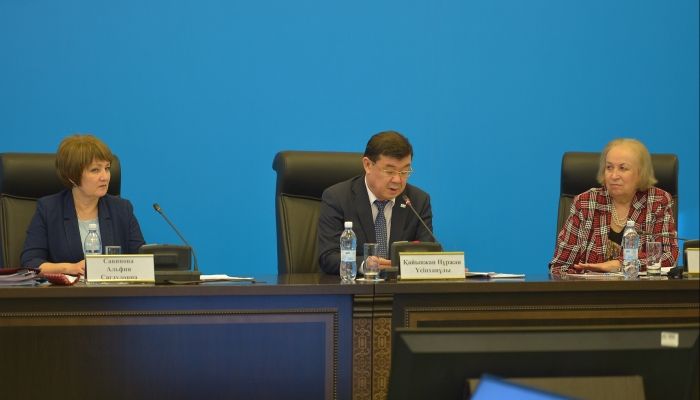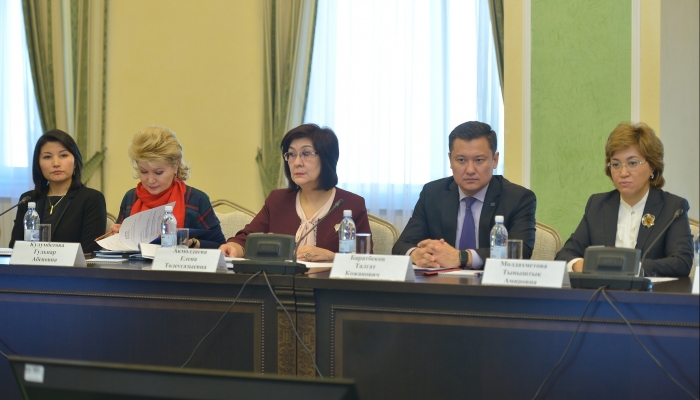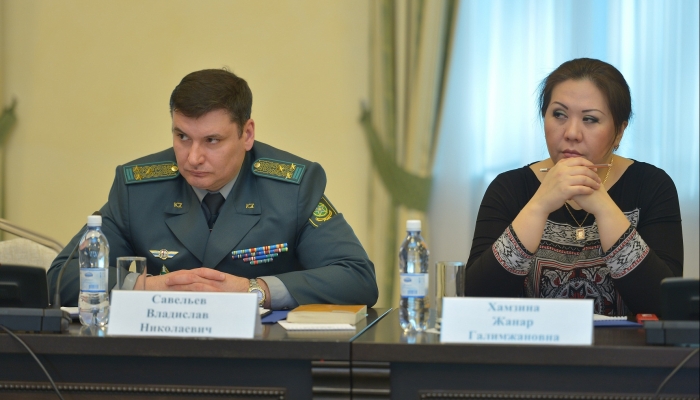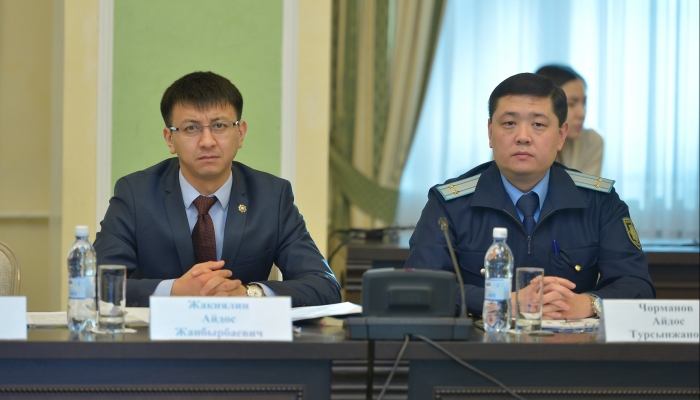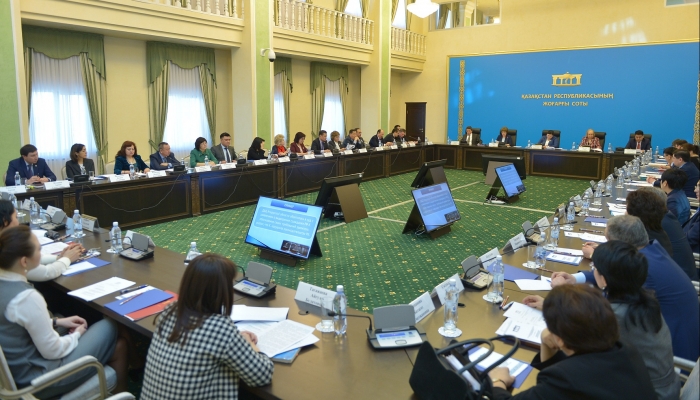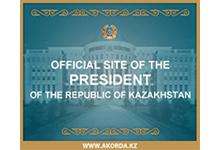Fri, 02/24/2017 - 15:47
The judges of the Supreme and local courts, a member of the Scientific Advisory Council under the Supreme Court, the retired Judge R. Yurchenko, representatives of the General Prosecutor's Office, the National Security Committee, the Ministries of Internal Affairs and Justice, as well as the Department on support of court activity under the Supreme Court took part in the event.
The purpose of the round table is to identify problem issues that arise in law enforcement practice, as well as to discuss issues on amending a number of legislative acts.
Opening the event, acting chairman of judicial board on civil cases of the Supreme Court Nurzhan Kayipzhan, emphasized the relevance of the topic of the round table and the need for the modern world to confront the threat of terrorism, including by improving migration legislation and its proper application. These measures help increase the investment and tourist attractiveness of our country.
It was noted about the conduct by the Supreme Court a generalization of the judicial practice on deportation foreigners or stateless persons outside the Republic of Kazakhstan, as well as summarizing the judicial practice in administrative cases related to the violation of the migration legislation in which the position of the Supreme Court on the application of the provisions of the migration legislation was formed.
Speaking, Judge of the Supreme Court Alfiya Savinova, noted that the Republic of Kazakhstan ratified the International Covenant on Civil and Political Rights dated December 16, 1966 and other international treaties.
Therefore, consideration of applications for the deportation of aliens who are legally present on the territory of the Republic of Kazakhstan should not be formal, the courts must take into account the provisions of the Constitution of the Republic of Kazakhstan and ratified international treaties, according to which everyone in the exercise of their rights and freedoms should be subject only to such restrictions as are established by law, are necessary to ensure the proper recognition and respect for the rights and freedoms of others, to protect the state (national) Security, territorial integrity, public (public) order, prevention of crimes, protection of health or morality of the population.
The participants of the round table made suggestions on improving the legislation in the field of population migration and developing common approaches when deciding on the deportation of aliens from the Republic of Kazakhstan.
Upon completion of the work, they developed appropriate recommendations.
Related materials
- The courts of the Mangistau region explain the provisions of the pilot project on mediation
- In the Zhambyl regional court, at the "round table" they discussed the matters of debt collection under bank loan agreements
- In the Zhambyl regional court, at the "round table" they discussed the matters of debt collection under bank loan agreements

